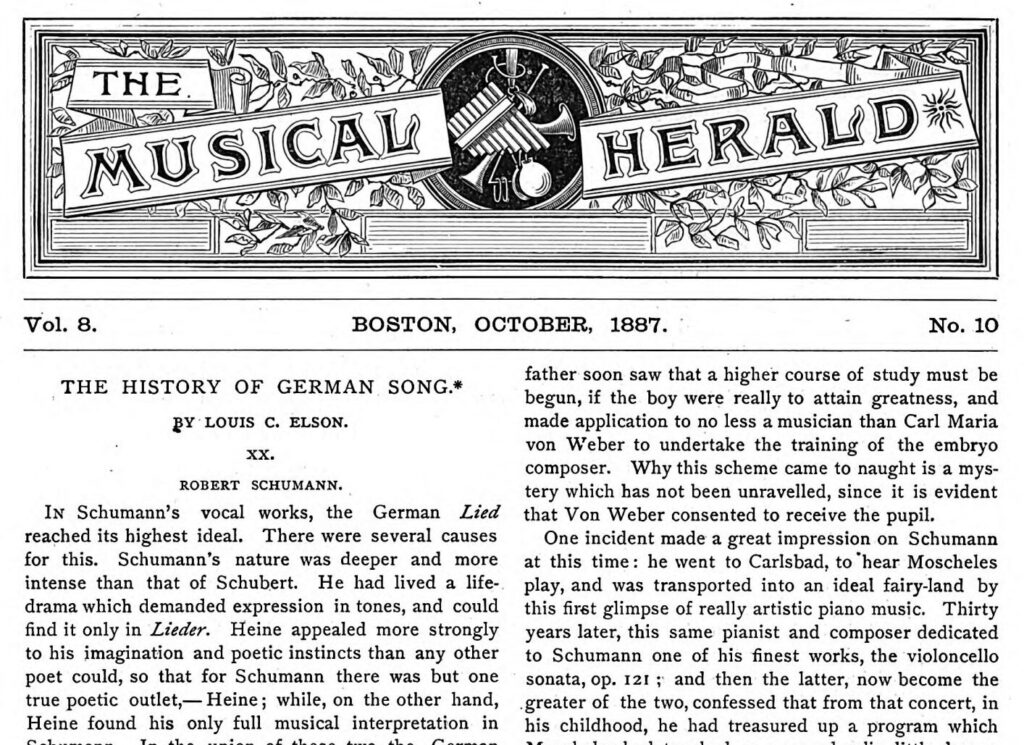In shape-note singing, we welcome every voice, valuing participation over polish and the shared experience over individual refinement. But not every tradition has held this view. The musical reform movement of the 19th and early 20th centuries sought to reshape American congregational singing, favoring trained voices and standardized harmony over the raw, communal sound that had long defined rural and frontier worship. A humorous anecdote like the one from The Arkansaw Traveller, later reprinted in The Musical Herald (Vol. 8 No. 10, October 1887, Boston, MA), reflects this changing attitude—not just as a lighthearted joke, but as an expression of the belief that some voices simply didn’t belong.

The singer in the story is not merely struggling to carry a tune; he is explicitly unwelcome. The description of his singing as being associated with “buckwheat notes” and the comparison to “hogs in the South” suggest something more than just poor musical ability—it casts “poor singing” as a feature of rural life. The humor comes at his expense, reinforcing the idea that there was a right and wrong way to sing in worship.
That this story found its way into The Musical Herald—a Boston publication aligned with the reformist push for musical improvement—underscores its purpose. It was more than entertainment; it was a reflection of a larger effort to move congregational music away from informal, participatory traditions and toward a more refined, professional model.
For those of us who sing from shape-note tunebooks today, this serves as an interesting historical footnote. While reformers sought to elevate church music, they also redefined who could comfortably take part in it. In contrast, shape-note singing has long valued enthusiasm over perfection, making room for every voice, trained or untrained. This old anecdote, meant as humor, reminds us how easily musical traditions can shift—not always in ways that leave room for all to sing.
CONGREGATIONAL singing may carry the appearance of brotherly love and sisterly regard (if there is such a thing), but it is sometimes far from entertaining to the person who takes no part in the performance. Recently, at a very fashionable place of religious worship, where many untrained and unmusical voices ran riot over persuasive tunes, a man who knew more about the grain market than of “buckwheat notes” lifted up his presumed voice to assist in the presentation of a hymn of long and hallowed standing. A modest but determined-looking fellow, who stood just in front of him, turned around, touched the singer on the arm, and said,—
“Do you live in this town?”
“Yes,” the singer replied, after allowing his voice to fall to the floor.
“Are you a member of this congregation?”
“I am, sir.”
“Is it not one of the aims of this church to treat strangers with marked courtesy?”
“It is.”
“Well, then, will you please do me a favor?”
“Certainly, if it is within my power. What can I do for you?”
“Hush.”
“Hush!” the singer gasped.
“That’s what I said.”
“Is it possible, sir, that you don’t want a man to sing?”
“Oh, I don’t mind a man’s singing, don’t care how much he sings; but I don’t want him to give himself up to such distressing noises as you have been making.”
“My gracious alive! has it come to such a pass that a man can’t sing in his own church?”
“It has come to pass that you can’t sing in any church.”
“You are insulting, sir.”
“And you are tormenting.”
“If you don’t like my singing”—
“I tell you that I’ve got no objections to anybody’s singing.”
“Well, if you don’t like me, you”—
“Got no objections to you at all.”
By this time, the hymn was finished, and the congregation sat down; but pretty soon another hymn was announced. The annoying singer again lifted his voice. The man in front of him turned and touched him on the arm.
“What do you want with me, sir?”
“Want you to hush.”
“I came here to sing, and”—
“Why don’t you sing, then? Don’t object to your singing, understand, but, to tell you the truth, your voice carries me back to a time when I was very unhappy,—a time when I raised hogs in the South; and, sir, since then, whenever I hear anything that sounds like”—
“I won’t worship in the same house with you, sir,” said the singer. “I will leave this place.”
“Thank you,” the stranger replied; and, smoothing out the unpleasant expression from his face, he sat down, and gave himself up to the enjoyment of the sermon.
— Arkansaw Traveller.



Leave a Reply